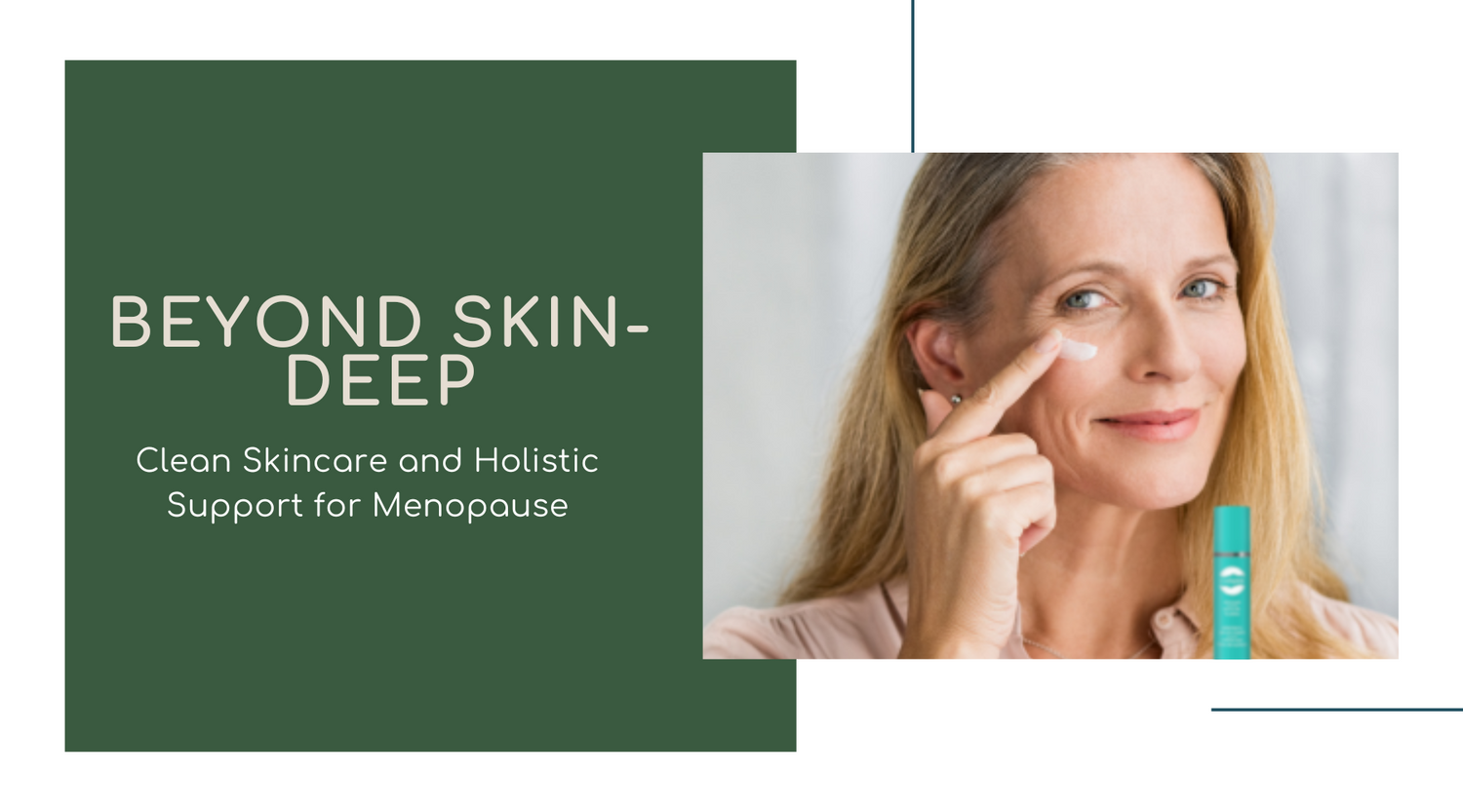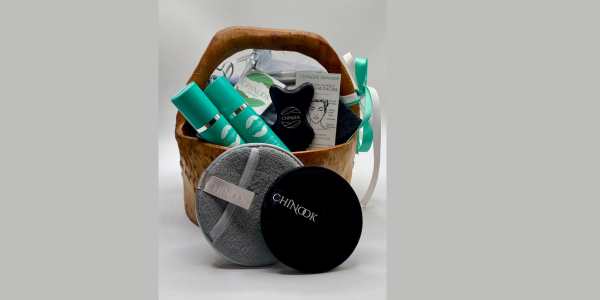
With the increasing awareness of our environmental impact, sustainable skincare has become a prominent topic in the beauty industry. Many individuals are now seeking eco-friendly and natural alternatives to traditional skincare products.
It's important to remember that everyone's skin is unique and requires personalized attention. Understanding your skin type is crucial to choosing the right products and practices for your skincare routine.
There are different skin types, such as dry, oily, combination, and sensitive. Each type has its own specific needs and concerns.
For example, dry skin requires hydrating and nourishing ingredients to prevent flakiness and tightness. On the other hand, prioritizing sustainable skincare, eco-friendly skincare, and natural skincare promotes healthier skin and helps minimize our environmental impact.
Click here to learn more about chinookskincare.com
Best Sustainable Skincare Practices for Different Skin Types
When it comes to sustainable skincare practices, it's important to cater to the unique needs of different skin types. Let's explore some of the best sustainable skincare practices for each type:
Oily Skin
If you have oily skin, look for skincare products labelled as oil-free or non-comedogenic. These products are designed to control excess oil production without clogging your pores.
Opt for lightweight moisturizers that won't leave your skin feeling greasy. Consider using natural ingredients like tea tree oil or witch hazel, which have antibacterial properties that can help reduce oiliness and prevent breakouts.
Dry Skin
For those with dry skin, it is essential to choose sustainable skincare, eco-friendly skincare, and natural skincare products that not only.
Choosing Eco-Friendly Skincare for Your Skin Type
When it comes to choosing sustainable skincare products, it is important to consider your specific skin type. Each skin type has unique needs and requires different products to maintain health and appearance.
By understanding your skin type, you can make more informed choices and select sustainable skincare options catering to your needs.
Identifying your skin type is the first step in choosing the right skincare products.
There are four main skin types: oily, dry, combination, and sensitive. Oily skin produces excess sebum, resulting in a shiny complexion and enlarged pores.
Dry skin lacks moisture and often feels tight and flaky. Combination skin is a mix of oily and dry areas, and individuals who prioritize sustainable skincare, eco-friendly skincare and natural skin care are increasingly opting for products that nourish and protect their skin while minimizing their environmental impact.
Benefits of Organic Skincare for Different Skin Types
When it comes to choosing organic skincare for different skin types, the benefits are numerous. Organic products are made from natural ingredients free from harmful chemicals and toxins, making them ideal for all skin types.
Organic skincare can help regulate sebum production for oily skin without clogging pores or causing breakouts. Ingredients like tea tree oil and witch hazel have natural antibacterial properties that help reduce acne and inflammation.
People with dry skin can benefit from organic skincare products rich in hydrating ingredients like hyaluronic acid and jojoba oil. These ingredients nourish and moisturize the skin, leaving it soft, supple, and well-hydrated. Combination skin can be tricky to manage, but organic skincare, sustainable skincare, eco-friendly skincare, and natural skincare products can help balance and nourish your skin while reducing your environmental footprint.
Importance of Ethical Skincare Choices
Ethical skincare choices play a crucial role in promoting a healthier planet and a healthier you. By opting for sustainable skincare, eco-friendly skincare, and natural skincare products, you can positively impact the environment while caring for your skin.
When it comes to sustainable skincare, it is important to choose products made from sustainable ingredients and produced in an environmentally conscious manner.
Look for brands prioritizing sustainable practices throughout their production, from sourcing ingredients to packaging.
Eco-friendly skincare products are designed to minimize their impact on the environment. Sustainable skincare, eco-friendly skincare, and natural skincare options have gained significant popularity in recent years as more consumers prioritize products that are often made from biodegradable and renewable materials and specifically designed to avoid the use of harmful chemicals and toxins that can.
Role of Cruelty-Free Skincare in Sustainable Beauty
Cruelty-free skincare plays a pivotal role in sustainable beauty, as it aligns with the values of animal welfare and environmental consciousness. By choosing cruelty-free skincare products, you can ensure that no animals have been harmed or tested during manufacturing.
When incorporating cruelty-free skincare into your beauty routine, looking for brands committed to ethical practices is important. These brands prioritize using sustainable ingredients and are transparent about their production methods.
In addition to the ethical aspect, opting for cruelty-free skincare also benefits your health. These sustainable skincare products are often non-toxic and free from harmful chemicals, making them eco-friendly and gentle on the skin.
Vegan Skincare Options for Different Skin Types
Regarding vegan skincare, various options are available for different skin types. Whether you have oily, dry, or sensitive skin, vegan skincare products can cater to your specific needs.
For oily skin, look for vegan skincare products specifically formulated to control excess oil and minimize shine. Ingredients like tea tree oil and witch hazel can help to regulate sebum production and keep your skin balanced.
If you have dry skin, choose vegan skincare products rich in hydrating ingredients like hyaluronic acid and plant-based oils. These ingredients can nourish and moisturize your skin while promoting sustainability and eco-friendly practices in your skincare routine.
Non-toxic Skincare Ingredients for All Skin Types
When it comes to sustainable skincare, several ingredients are suitable for all skin types. One such ingredient is aloe vera, known for its soothing and hydrating properties. Aloe vera can help calm irritated skin, reduce inflammation, and boost moisture.
Another non-toxic ingredient that works well for all skin types is rosehip oil. Rich in essential fatty acids and antioxidants, rosehip oil helps moisturize the skin, promote elasticity, and reduce the appearance of scars and fine lines. It is particularly beneficial for dry and sensitive skin.
Tea tree oil is an excellent choice for those with oily or acne-prone skin. It has become increasingly important for consumers to prioritize sustainable skincare, eco-friendly skincare, and natural skincare products to minimize their environmental impact and promote healthier choices for their skin.
Exploring Plant-Based Skincare for Different Skin Types
When it comes to exploring plant-based skincare for different skin types, various ingredients can offer unique benefits. One such ingredient is jojoba oil, known for its moisturizing properties. Jojoba oil closely resembles the natural oils produced by our skin, making it an excellent choice for all skin types.
For individuals with sensitive skin, calendula extract can provide soothing relief. This botanical extract has anti-inflammatory properties and can help calm redness and irritation.
Incorporating shea butter into your skincare routine can help nourish and hydrate your skin if you have dry skin. Shea butter is rich in vitamins and fatty acids, making it an excellent ingredient for sustainable skincare, eco-friendly skincare and natural skincare routines that prioritize preserving our environment and promoting healthy, chemical-free products.
Holistic Skincare Approaches for Sustainable Skin Health
In our quest for sustainable skincare, holistic approaches play a vital role. By prioritizing eco-friendly and natural skincare practices, we can ensure long-term well-being for our skin and the environment.
But what exactly does holistic skincare entail? Holistic skincare goes beyond surface-level treatments and focuses on nurturing the skin from within.
It emphasizes the importance of a well-rounded skincare routine that considers external factors and internal well-being.
By adopting a holistic approach, we can achieve sustainable skin health that lasts. One of the key aspects of holistic skincare is understanding and addressing different skin types. Each individual has unique skincare needs that can be effectively addressed through sustainable, eco-friendly, and natural solutions.
Environmental Impacts of Conventional Skincare and the Need for Green Alternatives
Conventional skincare products often have detrimental environmental impacts, and we need to prioritize sustainable skincare and eco-friendly alternatives. Ingredients like parabens, synthetic fragrances, and microplastics harm our skin, lead to water pollution, and damage marine life.
By transitioning to natural skincare products, we can minimize our ecological footprint.
Organic skincare, biodegradable, and ethically sourced ingredients are key to reducing environmental damage.
Consumers can make their skincare routines more environmentally friendly by choosing products with recyclable packaging, supporting sustainable skincare brands, and even creating their DIY skincare recipes using natural ingredients.
Trends in Sustainable Skincare: Must-Try Eco-Friendly Products





